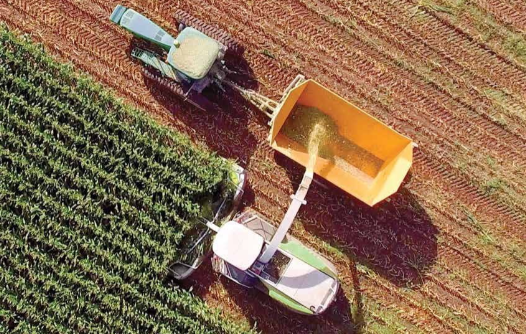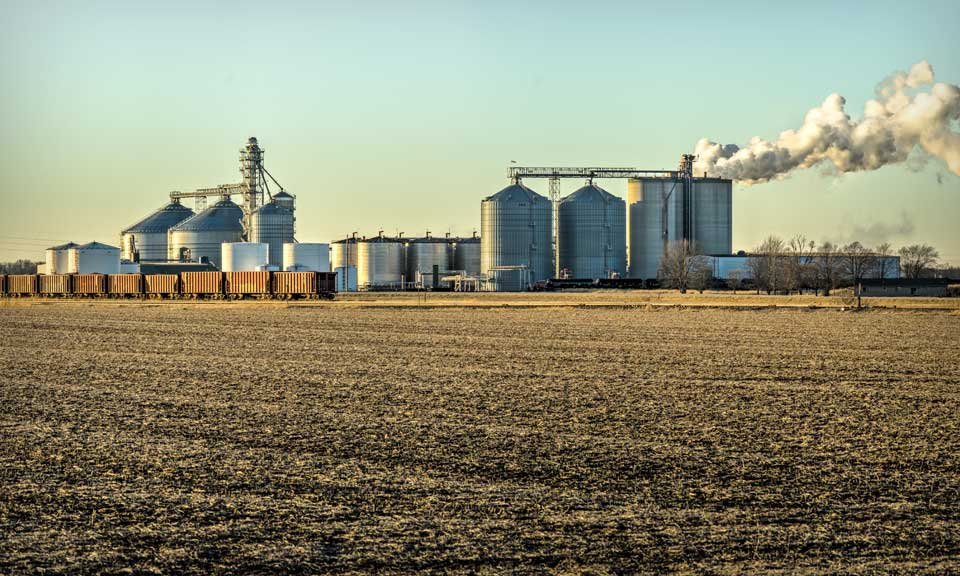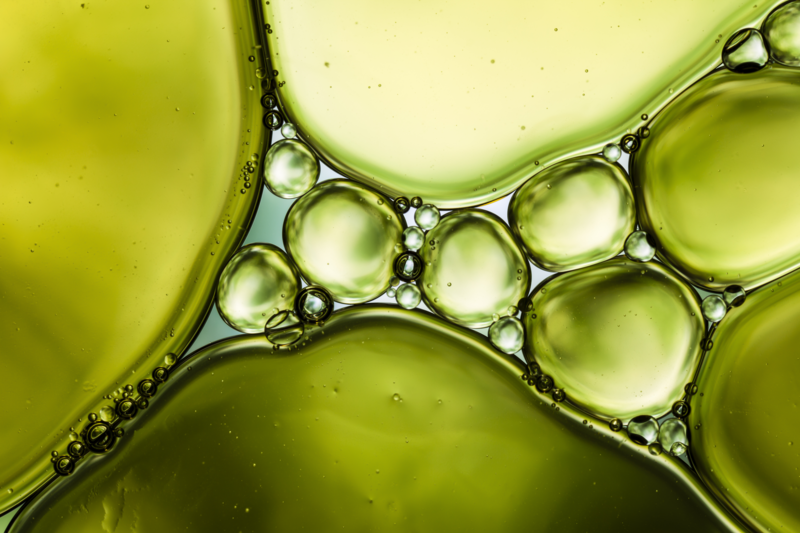Energy Crisis Shocks Extend to Food Sector


Thought Leadership
The price wall visualizes 258 of the most important price benchmarks assessed by Platts across various commodities from crude through to chemicals, LNG and carbon. The wall shows the price performance of these benchmarks over 2023 based on their indexed value from the first day of trading. Click on the commodity button to isolate different groups of resources to see which performed best in 2023, a year that saw dramatic changes in trade flows and demand because of sanctions and price caps on Russian commodities and a recovering post-COVID global economy. Isolate individual benchmarks by clicking on the tile to reveal a unique QR code to navigate to specific Platts methodology pages and average price data for 2022 and 2023. Click to start exploring

Thought Leadership
The role of biofuels in energy transition is growing, as they can help decarbonize hard-to-abate transport sectors, but more supply is needed to keep the world on track with net-zero goals. S&P Global Commodity Insights explores how regional policies are driving adoption and evolving technology is widening the feedstock pool, as well as supply and demand outlooks across transport sectors. READ MORE
Thought Leadership
India must keep investing in the upstream sector to ensure higher oil and gas production to avoid possible supply problems or volatile energy prices, as it embraces technologies that are more environment friendly, Mannish Mahesshwari, CEO of Invenire Energy, told S&P Global Commodity Insights. "Flipping the lens to energy security, sustained under investment in upstream without substitutional capacity and substantial scale in clean and new energy could have far reaching consequences in the journey of just transition," Mahesshwari said on the sidelines of the India Energy Week in Goa. Most of assets of private equity backed Invenire are discovered fields in India that the company has acquired through secondary market purchases from other firms as well as through primary acquisitions directly from the government. The company also has assets in Indonesia and East Africa. The private upstream firm is looking to accelerate production of oil and gas from the discovered fields in its portfolio but has no plans to venture into exploration in the foreseeable future. "We are putting our money where our mind is. As a company, our ability to understand the rocks and the molecules is relatively better than the electrons. We are investing in today's energy system, which is mainly oil and helping in phasing out coal with the help of low-carbon gas," Mahesshwari said. He said that the transition to a world of net zero is more certain today than envisaged in 2015, the year of the Paris Agreement. However, it is the uncertainty around the energy transition pace that adds complexity and risk for upstream projects. The upstream industry has been avoiding spending on projects that would either lock in heavy emissions for years to come or quickly turn into stranded assets. Right focus Invenire currently holds stakes in nine blocks in India. Out of these, four are discovered small fields (DSF) blocks -- one in Assam and three in Mumbai offshore -- comprising a total of about 100 million barrels equivalent of oil and gas. Invenire holds a 100% stake in the four DSF acreages. The company has a small production portfolio of about 12,000 b/d but has plans to boost that volume to 35,000 b/d by 2025. According to S&P Global, Invenire Energy's upstream plans show ambition and promise, considering the wider competitive landscape in India. The company's experience of operating in a tough post-2014 upstream period that saw oil prices slump will certainly influence its post-2023 growth ambitions. For assets outside India, the company might have plans to become a non-operator joint venture partner to take stakes in small-to-medium sized producing assets. The company's focus has been on monetizing discovered resources, having both operator and non-operator portfolios, S&P Global said. Besides India, Invenire has producing fields with 45.55% participating interest in a material acreage located in South Sumatra Basin in Indonesia. "The upstream industry's main focus now is to deliver the supply required to meet demand. Most of the industry's oil and gas investment for the rest of this decade will target advantaged resources -- those with the lowest cost, least risk, and possibly lowest Scope 1 emissions. Beyond this decade, to meet demand, the industry will depend increasingly on late-life reserves growth from legacy supply sources." Mahesshwari said. Similar views Mahesshwari's views echoed comments made by state-run upstream producers ONGC Ltd. and Oil India Ltd. at the IEW conference. ONGC Ltd., which contributes about 74% of India's crude oil and around 63% of its natural gas production, has been actively looking to widen its upstream portfolio as it believes that oil and gas will be a major component of the country's energy mix for the next three decades, while pursuing new crude-to-chemicals projects to prepare for the changing energy landscape, its Chairperson Arun Kumar Singh told the conference. Oil India Ltd. is aiming to double its exploration acreage in the coming years and seeking partnerships to realize the hydrocarbon potential of offshore regions in Indian sedimentary basins, its Chairman and Managing Director Ranjit Rath said. Mahesshwari said that there is a need to take a balanced view of energy transition, adding that any shortfall in upstream investments can add to supply issues and volatile energy prices, as seen in recent years. While it's important to keep looking for opportunities to invest in low-carbon businesses, continuing to responsibly invest in the core upstream business will remain the priority for the company in the foreseeable future. "The potential in carbon capture utilization and storage is enormous, and the oil and gas sector has unique skills that make it ideally placed to lead in reducing CO2 and methane emissions and decarbonize hard-to-abate sectors through carbon upcycling," Mahesshwari said.
Thought Leadership
Key players in the wheat trade, India and Indonesia are headed to the polls this year, and market sources believe that the role of agricultural policies is increasingly taking center stage, especially amid a backdrop of food security concerns and inflationary pressures. Recent elections in other countries that are also heavily involved in global grain production and trade have demonstrated the rising importance of agriculture in the political sphere. The recent presidential elections in Argentina were one such striking example. Export flows of Argentinian grains, especially wheat, had dropped significantly approaching the elections as farmers reportedly held back on sales in anticipation of the then-candidate Javier Milei's pledges to remove export taxes on grains. India, a major producer and former exporter has been embroiled in talks of wheat imports for months following an El Nino-battered wheat production and several large drawdowns in wheat reserves in 2023. The country's wheat reserves have been declining as the government is providing free-of-cost food grains to keep inflation in control ahead of the elections. The government's wheat reserves have fallen to a seven-year low, while providing free-of-cost food grains to keep inflation in control ahead of the elections. As of Dec. 31, 2023, the Food Corporation of India had 16.35 million mt wheat in government warehouses, compared with 17.17 million mt a year ago. However, if India ends up allowing wheat imports after the elections it may potentially lead to a rise in global wheat prices and weigh on returns for farmers, trade sources said. On the other hand, Indonesia is one of the biggest wheat importers in the world, and its citizens will be headed to the polls in two weeks' time to elect the eighth president of Indonesia. The potential introduction of a new wheat import tariff, depending on the outcome of the elections, may potentially add on to the burden of flour millers who are faced with rising operating costs and a slow rebound in downstream demand. India India's national elections are expected to be held during April-May with local media reports indicating a comeback of the ruling dispensations. Trade sources are not expecting significant changes to the trade policies before the elections, despite concerns that El Nino may weigh on India's wheat supply. "Since farmers are a key constituency in large wheat producing states, the ruling party is not willing to risk angering them and are not engaging in talks about imports," a trader based in Kanpur, Uttar Pradesh, said. Uttar Pradesh is the largest wheat producing state and also the most populous province in the country. While traders have been asking for a cut in import duty, the government is looking at planting progress before deciding on imports, an official with the agriculture ministry said. Currently, the government levies a 40% import duty on wheat. As of Jan. 22, Indian farmers planted wheat across 34 million hectares, against 33.8 million hectares last year, the Ministry of Agriculture reported. According to government officials, allowing imports could weigh on farmers' intentions to plant wheat. The government is also unwilling to let imports weigh on farmers' returns ahead of the general elections, the official with the farm ministry added. Market participants expect India's wheat harvest to shrink in MY 2023-24 (April-March) likely poor yields despite steady sowing. The government has pegged India's wheat harvest in MY 2023-24 at 114 million mt, 1% higher on the year. On the other hand, some trade participants believe if the wheat harvest rebounds the government may take a look at allowing exports after the elections. India had blocked wheat exports in May 2022 amid rising food inflation due to poor harvest. If the output is better than expected, the government may be willing to allow exports but any significant changes to the trade policy is unlikely before the elections, a trader based in Mumbai said. Indonesia Indonesia is headed for a three-way fight in the country's upcoming presidential elections Feb. 14, with local media reports indicating that third-time candidate Prabowo Subianto and his running mate, Gibran Rakabuming Raka, who is the eldest son of Indonesia's current president Joko Widodo, continue to maintain a wide lead against the two other presidential candidates, Anies Baswedan and Ganjar Pranowo. The results of the presidential elections could have a significant impact on Indonesia's agricultural policies, as the country continues to lag behind its goal of reducing imports and achieving self-sufficiency. Notably, the Prabowo-Gibran pairing has announced their intention to introduce a number of new taxes upon election, including taxes on wheat imports. Prabowo was quoted in local media as claiming that the losses incurred from not taxing wheat imports were significant, and he further cited the examples of neighboring countries Thailand and Brunei, which tax wheat. Indonesia is one of the world's largest wheat importers, importing between 9-11 million mt of wheat annually. The latest data from Indonesia's Central Bureau of Statistics shows that the country imported 9.7 million mt of wheat between January to November 2023. Indonesia does not tax milling wheat imports, which make up the vast majority of the country's total wheat imports. Meanwhile, feed wheat imports are generally controlled by the state-owned livestock farming company, Berdikari, to protect the interests of local corn farmers. "There are definitely some concerns in the industry if wheat imports become taxable," said a source in Indonesia's flour milling industry. Additionally, there have been no indications as to what the tariff rate may be. "There's still a lot of uncertainty, so we can only wait for the final result [of the presidential elections]," added another source in the local food manufacturing industry.